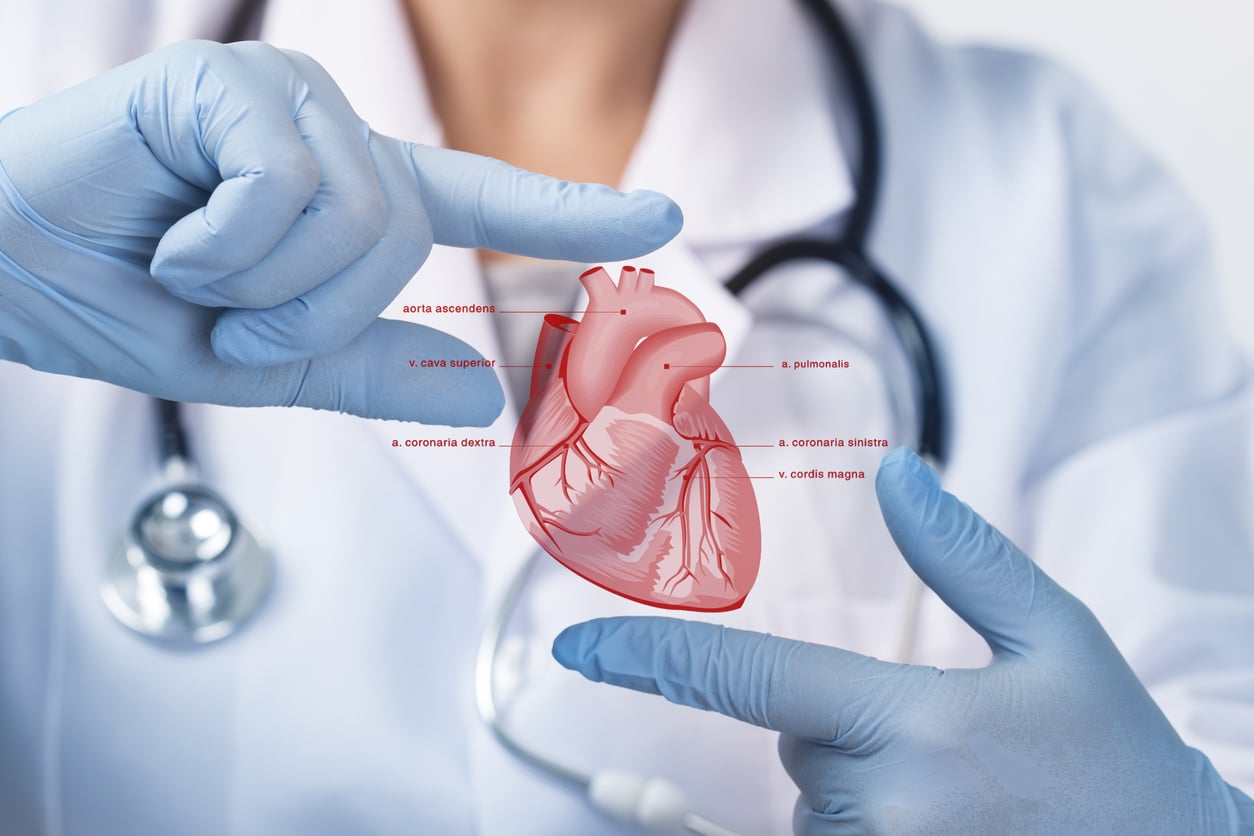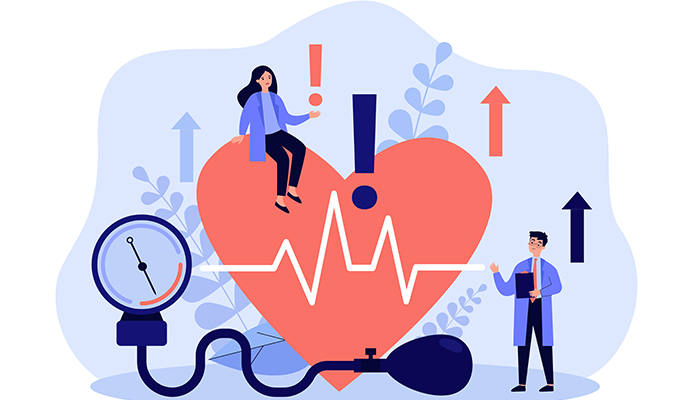Recognizing the Significance of Cardiology in Modern Healthcare Solutions
Cardiology plays an essential duty in modern-day medical care, especially as heart problem continues to be the leading reason for death worldwide. Advances in diagnostics and treatment have actually changed individual treatment, making it possible for earlier interventions and improved results. Moreover, the change towards preventive cardiology empowers individuals to manage their wellness proactively. As modern technology remains to evolve, the combination of cutting-edge solutions might better redefine cardiology's influence on public wellness, motivating a better assessment of emerging fads and their ramifications.
The Occurrence of Heart Problem and Its Effect on Public Wellness
Although heart condition continues to be the leading cause of fatality globally, its effect expands much past individual clients to influence public health systems and economies. The high occurrence of heart condition puts a substantial pressure on healthcare sources, necessitating increased funding for prevention, treatment, and recovery programs. Public health and wellness initiatives must address danger aspects such as weight problems, smoking, and sedentary lifestyles, which add substantially to the increasing occurrence of heart conditions.Moreover, the economic worry connected with heart problem is tremendous, incorporating not only direct clinical prices yet also indirect expenses associated with shed performance and early death. Neighborhoods encounter challenges in handling these expenses, commonly leading to variations in health care accessibility and outcomes. As the populace ages and lifestyle-related risks continue to intensify, the urgency for reliable cardiology interventions ends up being paramount. As a result, addressing cardiovascular disease is not only an issue of private health and wellness yet likewise a critical public health top priority.
Developments in Cardiac Diagnostics and Imaging Techniques
Recent developments in cardiac diagnostics and imaging techniques have actually reinvented the area of cardiology, boosting the capacity to keep an eye on and find heart problem. Techniques such as heart MRI, CT angiography, and echocardiography have actually come to be significantly advanced, providing thorough photos of heart structures and functions. These methods enable the very early recognition of problems like coronary artery illness, heart failure, and valvular disorders.Moreover, advancements in non-invasive diagnostics, such as wearable innovation and remote monitoring gadgets, have encouraged patients and health care providers. These tools help with real-time monitoring of heart rhythms and other crucial indications, causing prompt treatments. In addition, artificial intelligence is being integrated into imaging analysis, improving accuracy and effectiveness in diagnosis.
Developments in Treatment Alternatives for Heart Conditions
Recent improvements in cardiology have caused considerable innovations in treatment options for heart problems. These consist of advanced surgical techniques that boost procedural results and emerging medicines that use brand-new methods for therapy. As the area develops, these innovations play a vital duty in boosting patient care and end results.
Advanced Surgical Techniques
Developments in medical techniques have actually transformed the landscape of cardiology, providing new wish for people with heart disease. Minimally invasive procedures, such as catheter-based treatments, have actually substantially reduced recuperation times and healthcare facility stays. Techniques like robotic-assisted surgical procedure enhance accuracy, enabling doctors to browse complicated anatomical frameworks with greater accuracy. Moreover, developments in imaging technology facilitate real-time visualization during treatments, enhancing end results. Transcatheter aortic valve substitute (TAVR) exhibits a breakthrough in dealing with aortic constriction, enabling shutoff replacement without open-heart surgical treatment. In addition, hybrid methods that incorporate surgical and catheter-based techniques give customized solutions for various cardiac problems. These sophisticated medical methods not just enhance patient safety however additionally broaden treatment options, underscoring the essential function of development in contemporary cardiology practices.
Arising Drugs and Therapies
As the landscape of cardiology remains to develop, emerging medications and treatments play a critical function in enhancing therapy alternatives for heart problems. Developments such as unique anticoagulants and progressed lipid-lowering agents have actually transformed the administration of cardiovascular conditions, considerably minimizing patient morbidity and death. Furthermore, the advancement of gene treatments and regenerative medicine uses promising methods for dealing with problems formerly considered permanent. Scientific tests are continuously exposing the efficiency of these therapies, pressing the boundaries of traditional treatments. The assimilation of digital wellness modern technologies facilitates individualized medication, permitting for customized therapy plans based on genetic and way of life aspects. Jointly, these advancements highlight the dynamic nature of cardiology, improving client outcomes and redefining requirements of care in contemporary health care.
The Role of Preventive Cardiology in Individual Treatment
Preventive cardiology plays a necessary role in patient care by concentrating on the identification of danger aspects that contribute to heart problem. With way of living adjustment strategies and early discovery strategies, doctor can properly decrease the occurrence of cardiovascular occasions - Cardiologist near me. This aggressive technique not only improves person outcomes however additionally promotes long-term health
Danger Element Recognition
While heart diseases stay a leading cause of morbidity and death worldwide, effective danger variable recognition acts as a foundation of preventive cardiology. Determining risk elements such as hypertension, diabetes, hyperlipidemia, and family members background is vital for early treatment. Health care experts use numerous screening methods to evaluate these elements, enabling customized preventative actions. Additionally, comprehending a client's way of living selections, such as smoking and physical inactivity, better notifies danger evaluations. This complete evaluation makes it possible for medical professionals to create personalized care plans focused on mitigating dangers. By prioritizing risk variable recognition, health care systems can enhance individual results and reduce the total burden of heart diseases, eventually contributing to improved public wellness techniques and source allocation.
Way Of Living Alteration Approaches
A multitude of researches highlights the crucial role of way of life alteration approaches in minimizing heart disease danger. These approaches include dietary changes, increased physical activity, smoking cessation, and weight administration. By taking on a heart-healthy diet regimen abundant in fruits, vegetables, whole grains, and lean healthy proteins, individuals can decrease cholesterol degrees and high blood pressure. Regular physical activity strengthens the heart and improves overall cardiovascular wellness. Additionally, giving up cigarette smoking greatly lowers the danger of heart disease and enhances recovery prices for those with status quo. Weight administration additionally adds to cardio wellness by mitigating other threat factors such as diabetes and high blood pressure. Executing these way of life alters not only promotes individual well-being yet additionally offers as a cornerstone of precautionary cardiology in individual treatment.
Early Detection Strategies
Lifestyle modifications greatly add to decreasing heart disease dangers, yet they are most efficient when coupled with early discovery methods. Preventive cardiology emphasizes the relevance of determining prospective heart issues prior to they escalate into severe conditions. Techniques such as blood stress tracking, cholesterol testing, and progressed imaging modern technologies like echocardiograms play critical roles in reviewing cardio health and wellness. Biomarkers and genetic screening additionally boost the accuracy of early discovery, permitting tailored preventative techniques. Routine heart threat analyses equip health care suppliers to step in proactively, possibly avoiding heart assaults and strokes (Cardiologist near me). By integrating these early detection methods into routine treatment, patients can take advantage of timely way of life interventions and targeted treatments, eventually improving end results and boosting lifestyle
Integrating Modern Technology Into Cardiology Practices
As developments in innovation remain to improve different areas, the integration of innovative tools and systems right into cardiology methods has come to be necessary for improving individual treatment and outcomes. Telemedicine systems allow cardiologists to check people remotely, improving access to care while reducing the problem on medical care facilities. Wearable devices, such as smartwatches, make it possible for continual heart rate tracking, alerting both physicians and people to prospective concerns in real-time. In addition, expert system (AI) is being made use of to evaluate large amounts of heart information, helping in very early diagnosis and tailored treatment strategies. Advanced imaging methods, consisting of 3D echocardiography, boost visualization of heart structures, leading to extra accurate interventions. Electronic health and wellness documents (EHRs) enhance person details monitoring, making sure that cardiologists have instant accessibility to critical information. Together, these technical innovations are changing cardiology, promoting proactive administration and enhanced wellness results for people with cardio problems.
The Importance of Individual Education and Engagement
Client education and learning and interaction play a critical duty in the monitoring of cardio wellness. By equipping patients with expertise regarding their problems, treatment options, and way of life changes, healthcare carriers equip next page individuals to take an active duty in their care. This positive approach can cause enhanced adherence to prescribed medications, dietary changes, and exercise routines, inevitably lowering the threat of complications.Engagement additionally fosters a solid patient-provider partnership, motivating open communication and depend on. When people feel educated and entailed, they are a lot more most likely to voice problems and ask concerns, which can cause far better scientific end results. Furthermore, educational resources, such as workshops or digital platforms, can boost understanding and advertise self-management methods. Overall, focusing on patient education and learning and engagement is vital for improving cardiovascular wellness, enhancing lifestyle, and lowering healthcare expenses related to cardio diseases.
Future Patterns in Cardiology and Their Potential Effect

Often Asked Concerns
What Way Of Life Adjustments Can Decrease Heart Illness Threat?
The current question addresses way of life modifications that can considerably reduce heart condition threat. Cardiology. Taking on a well balanced diet regimen, involving in routine exercise, keeping a healthy weight, managing tension, and avoiding tobacco can especially boost cardiovascular wellness
How Can I Acknowledge Very Early Signs of Heart Problems?
Recognizing very early indications of heart problems involves surveillance signs and symptoms such as upper body discomfort, shortness of breath, tiredness, and uneven heartbeat. Timely awareness of these signs can motivate needed medical assessment and treatment for far better end results.
What Are the Differences In Between Cardiologists and Cardiac Surgeons?
The distinctions between cardiologists and go to this website heart doctors hinge on their duties; cardiologists mostly manage and identify heart conditions with non-invasive approaches, while cardiac surgeons carry out procedures to correct architectural heart issues. Each plays a vital, distinct function.

Exactly how Usually Should I Obtain My Heart Health Checked?
The frequency of heart medical examination differs based on specific threat factors. Usually, grownups ought to go through analyses each to 2 years, while those with status quo may call for even more regular evaluations as suggested by health care specialists.
What Role Does Genetics Play in Heart Problem Threat?
Genes substantially affects heart problem risk, with domestic patterns suggesting acquired problems. Details genetics can predispose individuals to high blood pressure, cholesterol concerns, and various other cardiovascular issues, highlighting the relevance of hereditary screening in assessing heart health. Heart illness stays the leading reason of fatality around the world, its influence expands far past private patients to influence public wellness systems and economic situations. Public health and wellness efforts should resolve danger factors such as excessive weight, smoking, and less active way of lives, which add significantly to the climbing occurrence of heart conditions.Moreover, the economic concern associated with heart disease is enormous, encompassing not only straight clinical prices however also indirect costs connected to lost performance and early death. Preventive cardiology plays an important role in patient care by focusing on the recognition of risk aspects that contribute to heart illness. Artificial intelligence (AI) and machine discovering are improving diagnostics and client surveillance, making it possible for very early detection of heart conditions. The differences between cardiologists and cardiac cosmetic surgeons exist in their duties; cardiologists mostly handle and diagnose heart conditions through a fantastic read non-invasive approaches, while heart specialists execute surgical procedures to remedy architectural heart problems.